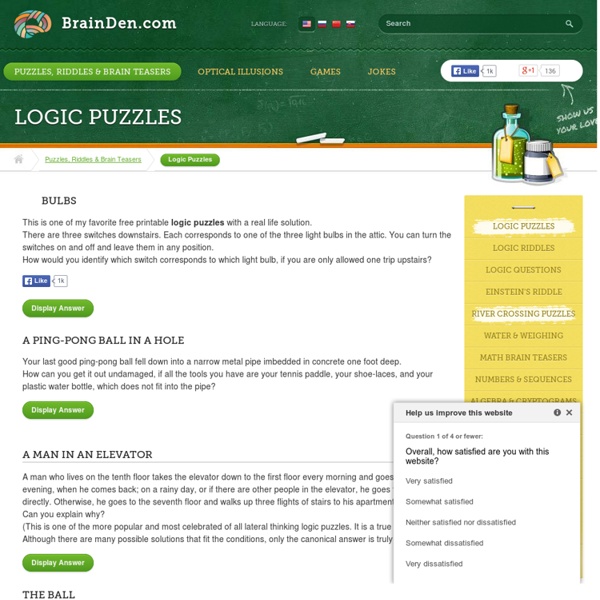Famous Paradoxes - Examples and Definition
What is a Paradox A paradox is a statement that contradicts itself or a situation which seems to defy logic. That's a simple definition of paradox.
Library of Alexandria
The Great Library of Alexandria, O. Von Corven, 19th century The Royal Library of Alexandria, or Ancient Library of Alexandria, in Alexandria, Egypt, was one of the largest and most significant libraries of the ancient world. It was dedicated to the Muses, the nine goddesses of the arts.[1] It flourished under the patronage of the Ptolemaic dynasty and functioned as a major center of scholarship from its construction in the 3rd century BC until the Roman conquest of Egypt in 30 BC. With collections of works, lecture halls, meeting rooms, and gardens, the library was part of a larger research institution called the Musaeum of Alexandria, where many of the most famous thinkers of the ancient world studied.
All-time Best Games - Walkthrough Guides, Reviews, Discussion, Hints and Tips at JayIsGames
Director, game designer and art director Fumito Ueda and producer Kenji Kaido, along with the rest of the development team behind ICO, have broken the mold and released, exclusively for the Playstation 2, what has become the single most original and awe-inspiring gaming experience of my life, Shadow of the Colossus... Cooperate, or backstab? Build, or destroy? All for one and one for all, or every mouse for himself?
Lateral Thinking Problems - Semantics
Lateral thinking problems that require you to pay close attention to the exact wording of the problem. 1. A woman gave natural birth to two sons who were born on the same hour of the same day of the same month of the same year. But they were not twins and she had no access to a time machine. How could this be?
Molecular Expressions: Chip Shots Gallery
Chip Shots Gallery The Chip Shots website explores the hidden beauty in some of today's hottest microprocessors as visualized under a microscope. Using a variety of highly refined reflected optical microscopy techniques, we have developed a large collection of full-color photomicrographs (photographs taken through a microscope) illustrating the intricate and surprising patterns observed on integrated circuit surfaces. For decades, semiconductors have been doubling in power every 18 months or so, according to Moore’s Law, a rule of thumb coined by Intel co-founder Gordon Moore. Intel was long the innovation leader in the $200+ billion semiconductor industry, but is facing tough competition from the 64-bit architecture of Advanced Micro Devices. The latest chips have a clock speed greater than 4 gigahertz and are packed with more than 100 million transistors, each circuit occupying just 90 nanometers (billionths of a meter) of silicon real estate.
Guide: Introduction to Incursions, Part 2
This document continues from Part 1 of the Introduction to Incursions guide I wrote yesterday. If you haven't read Part 1, you should do so before continuing on to this one. Step 4: A Little Bling This next "step" isn't a step at all so much as it will be a constant journey.
Critical thinking web
We have over 100 online tutorials on different aspects of thinking skills. They are organized into modules listed below and in the menu above. Our tutorials are used by universities, community colleges, and high schools around the world.
Microsoft's Craig Mundie wants driver's licenses for the Internet - The Curious Capitalist - TIME.com
I just went to a panel discussion about Internet security and let me tell you, it was scar-y. Between individual fraud, organized crime, corporate espionage and government spying, it’s an incredibly dangerous world out there, which, according to one panelist, is growing exponentially worse. These are incredibly complex problems that even the smartest of the smart admit they don’t have a great handle on, although Craig Mundie, Microsoft’s chief research and technology officer, offered up a surprisingly simple solution that might start us down a path to dealing with them: driver’s licenses for the Internet. The thing about the Internet is that it was never intended to be a worldwide system of mass communication.



